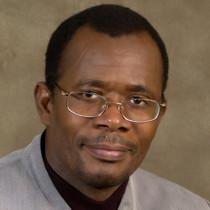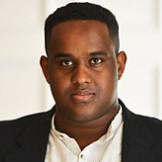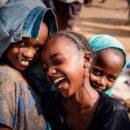African Court Not Ready for International Crimes – By Stephen Lamony


The appointment of Fatou Bensouda as Chief Prosecutor at the ICC provides an important opportunity for improved cooperation between the ICC and AU.
African states must take lead in prosecution of grave crimes rather than diluting the mandate of an over-stretched regional court.
The three year old impasse between the African Union (AU) and the International Criminal Court (ICC) is being further complicated by plans to expand the jurisdiction of African Court on Human and People’s Rights (African Court) to cover grave international crimes. While new leadership in the two bodies offers a chance at reconciliation, African states must live up to their obligations to hold perpetrators to account rather than diluting the mandate of the over-stretched African Court.
In theory, the AU and ICC share a common goal of ending impunity for perpetrators of gross human rights violations. The AU constitution promises “respect for the sanctity of human life, condemnation and rejection of impunity and political assassination, acts of terrorism and subversive activities.” In practice, however, the two have greatly differing plans for ending impunity, which is driving the AU to expand the African Court’s jurisdiction. Africa’s courts are also severely underequipped to prosecute perpetrators of gross human rights violations.
Proposed expansion of the African Court
In July 2012, the AU received a proposal to expand the statute of the African Court to include jurisdiction over international criminal prosecutions, including, but not exclusive to, genocide, war crimes, and crimes against humanity. The AU delayed a decision on the proposal until January 2013, when it would have more information on the costs of the expansion, it is unclear that it will pass at that stage or be further delayed.
The AfricanCourt””established in January 2004″”is currently failing to carry out or implement its mandate to monitor state’s accordance with, and implementation of, the African Charter on Human and Peoples’ Rights. An expansion of the African Court’s charter would dilute its original mandate, offering little hope for success in prosecuting international crimes. With the cost of a single international criminal trial estimated at nearly US$20 million””almost double the combined approved 2009 budgets of the AU Commission and the African Court“”financing is a major issue. The African Court does not have the funding or infrastructure necessary to successfully prosecute international crimes; efforts to secure funding or build infrastructure would take years, allowing the current culture of impunity in Africa to flourish.
Difficult AU-ICC relationship driving African Court proposals
The difficult relationship between the AU and ICC is driving the proposals to expand the jurisdiction of the African Court, with their differences stemming from fundamentally differing views of justice and peace. The AU sees international justice as an impediment to peace, and that the two are mutually exclusive, i.e. it is either peace or justice. The ICC meanwhile stands for justice for victims irrespective of the situation.
AU decisions also reflect several more specific concerns that serve to exacerbate this philosophical difference. In July 2009, for example, the AU aired several complaints about the Court and Rome Statute, including the United Nations (UN) Security Council (Council) power to refer cases to the ICC, the lack of transparency in ICC proceedings, the need for clarification on the immunities of officials whose states are not party to the Statute, and expressed a desire that there is regional input in determining whether or not to proceed with prosecutions. In February and July 2009, the AU called on the Council to reverse the ICC charges against Sudanese President Omar al-Bashir, arguing that they were undermining the peace process in Sudan and resolution of the conflict in Darfur.
Meanwhile, in July 2010, the AU took issue with the conduct the then chief prosecutor Luis Moreno-Ocampo, who it accused of “making unacceptable, rude, and condescending statements on the case of al-Bashir and other situations in Africa.” The perception of a biased ICC focus on African has been a recurring theme among certain leaders. Then in July 2011, the AU condemned the ICC charges against former Libyan leader Moammar Qaddafi for “complicating the efforts aimed at finding a negotiated political solution to the crisis in Libya” and urged domestic trials for Libyans charged with international crimes.
It was during its July 2009 General Assembly that the AU first asked the African Court to “examine the implications of the Court being empowered to try serious crimes of international concern.” Needless to say, the efforts to expand the jurisdiction of the African Court can therefore be seen as forming part of a wider AU contestation of ICC jurisdiction.
Habré case – beginning in sight?
Among many examples of African states failing to prosecute international crimes, Senegal’s slowness in bringing to trial former president Hissí¨ne Habré””under house arrest since 2005″”for the political killings and torture that characterised his rule over Chad from 1982 to 1990 stands out.
In July of this year, Senegal and the AU signed an agreement to set up a special tribunal to try Habré, prompted by an International Court of Justice (ICJ) ruling that the country must begin proceedings without further delay if it did not extradite him. This followed years of intense pressure from the international community to extradite Habré to Belgium or another European country that already has the infrastructure necessary for a trial of such magnitude. Senegal and the AU, however, consistently refused these demands, insisting that a regional trial would be carried out. Since 2006, the AU and the Senegalese government have been trying, and failing, including through appeals to other African states, to raise the necessary funds to try Habré.
While President Macky Sall’s willingness to prosecute Habré is a promising sign, it remains to be seen how long it will take for the special tribunal to be set up and whether it will meet international standards. The outcome of the trial will also have a significant impact on the international community’s views on the effectiveness of African courts in trying human rights violators. If African national and regional courts continue to fail victims, international courts like the International Court of Justice (ICJ) or ICC will continue to intervene.
Given the failure of the African Court system to date in bringing Habré to justice, it seems ill-advised for the AU to continue its efforts for an independent regional court. Furthermore, it has been suggested that states parties to the Rome Statute do not have the legal ability to try any crimes (excluding genocide) in a regional African Court. Although this is as of yet unproven, this would be another reason for the AU not to expand the mandate of the African Court.
The way ahead
It remains to be seen whether the AU and the ICC will be able to resolve their differences, which continue to impede efforts to end impunity and protect human rights in Africa. However, with former South African minister Ms. Nkosazana Dlamini-Zuma taking over the leadership of the AU Commission and Ms. Fatou Bensouda becoming ICC chief prosecutor earlier this year, there is much scope for the building of a new AU-ICC relationship.
At their next summit in January, African leaders should take the AU commission to task over its continuing non-cooperation with the ICC in the knowledge that the African Court is not in a position to undertake prosecution of international crimes. “It cannot, and will not, offer relief to any of the people currently indicted or under investigation by the ICC” Instead the AU and individual states need to reject any kind of justice aimed at protecting a few powerful people, uphold their obligations to cooperate with the ICC, and strengthen national capacities and political will to prosecute perpetrators. Their citizens deserve no less and civil society stands ready to assist.
Stephen Arthur Lamony is a Ugandan born national who works for the Coalition for the International Criminal Court as a Situations Adviser. The views expressed here are mine and do not represent the official position of my employer.







It’s overall points are true. However, the peace vs. justice thing is not true at all.
There are not fundamental philosophical differences between the AU and the ICC, they are political considerations.
You’ve also not mentioned another important point – the ICC budget is low anyway, often they have to rely on NGO findings as evidence and around 60% from the EU. African Court would at least be a way of strengthening African commitments to justice and getting round the accusations of an African-bias at the ICC.
Reading AU decisions 245 paragraph 3 and Decision 419 para 4 I will agree with the writer that the AU sees international justice as generally an impediment to peace. Every body knows that in the situation of Kenya there was no threat to international peace and security. Why is the AU pushing for a postponement of investigations and prosecutions there? There is also no threat to international peace and security in Darfur too.
Rom may be right that the budget of the ICC is low; however, the ICC has more money than the African court.
Frankly, I am shocked by the factual inaccuracies contained in this article by someone who claims to be a practitioner in this field. The author has little knowledge of and understanding of the matters at hand, and has no basis for his related theories and suppositions. He does an intellectual injustice to readers of this site.
“In February and July 2009, the AU called on the Council to reverse the ICC charges against Sudanese President Omar al-Bashir, arguing that they were undermining the peace process in Sudan and resolution of the conflict in Darfur”. AA
Exactly the point, subjugation and Human rights violations, with resultant cowardice of the Citizens into total acceptance of their atrocities as a norm is what African government and so called leaders consistently interpret as keeping peace.
It would be naive of the world to expect a criminal to deliver him or herself willingly to justice not to talk of instigate one against himself.
That could just be the simple explanation for the position of the AU, represented by the African Wolves(The perpetual African Leaders) devoring the sheep (African Citizens) at will unquestioned, on the ICC.
Thanks